Miami Cancer Institute’s Oncology Rehab Symposium: Restoring Function and Maximizing Quality of Life
Cancer is a public health problem of major proportions. Each year, more than 600,000 people in the United States die from cancer. There have been many advances in the practice of rehabilitation medicine, psychology, neurology and other clinical specialties that identify and treat patients with cancer. Fatigue and loss of physical performance are frequent problems of cancer patients. This symposium will provide practical, evidence-based strategies to accurately treat oncology patients of various types, including contraindications for treatment.
Agenda
| 7:55 a.m. | Opening Remarks Adrian Cristian, M.D. |
| 8:00 a.m. | Cancer Rehabilitation: Current State of the Science and Future Horizons Nicole L. Stout, DPT, Keynote Speaker |
| 9:00 a.m. | Introduction to Lymphedema Ariana Reyes, OTR, CLT |
| 9:30 a.m. | Shoulder Pain and Dysfunction in Breast Cancer Adrian Cristian, M.D |
| 10:00 a.m. | Break and Exhibits |
| 10:10 a.m. | Neuromuscular Complications of Gynecologic Cancers Christian Marcel Custodio, M.D. |
| 10:40 a.m. | New Concepts in Head and Neck Cancer Geoffrey D. Young, M.D., Ph.D. |
| 11:10 a.m. | Dysphagia Related to Head and Neck Cancer: Eat, Drink and Be Merry Mary E. Owens, M.Ed., CCC-SLP |
| 11:40 a.m. | Break and Exhibits |
| 11:50 a.m. | Cancer-Related Cognitive Dysfunction (CRCD): Diagnosis, Pathophysiology and Management Maria Beatriz Currier, M.D. |
| 12:20 p.m. | Chemotherapy-Induced Peripheral Neuropathy (CIPN) Christian Marcel Custodio, M.D. |
| 12:50 p.m. | Exercise Therapy for Patients Diagnosed With Cancer Lee W. Jones, Ph.D. |
| 1:20 p.m. | Closing Remarks |
| 1:30 p.m. | Adjourn |
NOTE: Schedule subject to change.
Symposium Director
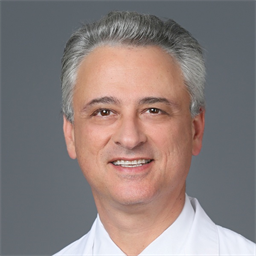 | Adrian Cristian, M.D., MHCM |
Faculty
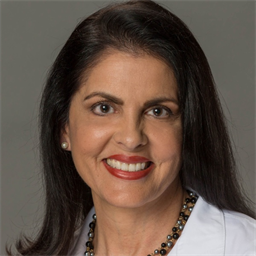 | Maria Beatriz Currier, M.D. |
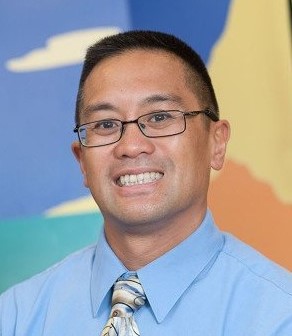 | Christian Marcel Custodio, M.D. Cancer Rehabilitation Medicine Fellowship Director Attending Physiatrist & Clinical Member Rehabilitation Medicine Service | Department of Neurology Memorial Sloan Kettering Cancer Center New York, New York |
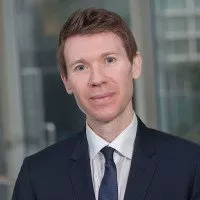 | Lee W. Jones, Ph.D. Attending Physiologist Chief, Exercise-Oncology Service Department of Medicine, Division of Solid Tumor Oncology Memorial Sloan Kettering Cancer Center New York, New York |
 | Mary E. Owens, M.Ed., CCC-SLP Speech-Language Pathologist Miami Cancer Institute Miami, Florida
|
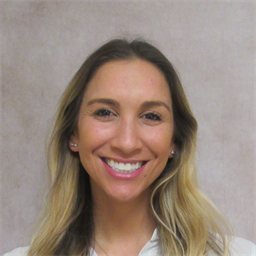 | Ariana Reyes, OTR, CLT Occupational Therapist Miami Cancer Institute Miami, Florida |
 | Nicole L. Stout, DPT, CLT-LANA, FAPTA - Keynote Speaker Clinical Research Scientist / Physical Therapist Research Assistant Professor West Virginia University Cancer Institute School of Medicine, Department of Hematology Oncology Morgantown, West Virginia |
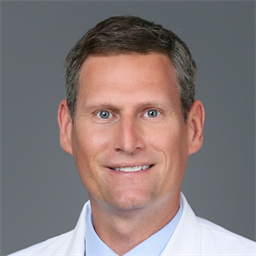 | Geoffrey D. Young, M.D., Ph.D. Chief of Head and Neck Surgery Miami Cancer Institute Miami, Florida
|
Disclosures And Resolution Of Conflict Of Interest
Accreditation
Baptist Health South Florida is accredited by the Accreditation Council for Continuing Medical Education (ACCME) to provide continuing medical education for physicians. Baptist Health has been re-surveyed by the ACCME and awarded Commendation for 6 years as a provider of CME for physicians.
Baptist Health South Florida designates this live activity for a maximum of 5 AMA PRA Category 1 Credits™. Physicians should claim only the credit commensurate with the extent of their participation in the activity.
This activity has been approved for 5 credit hours, CE Broker Course #20-698753, by the Florida Boards of Medicine, Osteopathic Medicine and by the Florida Council of Physician Assistants.
This activity has also been approved for 5 credits for Nurse Practitioners, Nurses, Occupational Therapists, Pharmacists and Techs, Respiratory Therapists (personal growth), Clinical Socials Workers and Athletic Trainers. Baptist Health South Florida CE Broker Provider #50-182.
This course is has been approved for 6 continuing education credits from the Florida Physical Therapy Association, course approval CE Broker Course #20-698753, FPTA approval #CE21-698753. Accreditation of this course does not necessarily imply that the FPTA supports the views of the presenter or the sponsors.

The American Academy of Nurse Practitioners Certification Board (AANPCB) accepts CEs accredited by the ACCME. Individuals are responsible for checking with the AANPCB for further guidelines.
AMA PRA Category 1 Credits™ claimed by physicians attending live events certified and organized in the United States for AMA PRA Category 1 Credits™ can be claimed through the agreement on mutual recognition of credits between UEMS and AMA, considered as being equal to the European Continuous Medical Education Credits (ECMEC©) granted by the UEMS. One AMA PRA Category 1 Credit™ is equivalent to one (1) hour of European EACCME Credit (ECMEC©). Each medical specialist should claim only those hours of credit that he/she actually spent in the educational activity.
Disclaimer
Baptist Health South Florida presents this CME activity for use by healthcare professionals for educational purposes only. Opinions, perspectives and information presented by the faculty represent their ideas and views, and participants should carefully consider all available scientific data before acting on knowledge gained through this activity. Additionally, participants should consult the US Food and Drug Administration (FDA) for approved uses prior to prescribing medications or utilizing medical devices discussed in this activity.
While Baptist Health makes reasonable efforts to ensure that accurate information is presented, no warranty, expressed or implied, is offered. Participants should rely on their own clinical judgment, knowledge and experience before applying information acquired to their professional use.
ASHA CE Provider approval and use of the Brand Block does not imply endorsement of course content, specific products or clinical procedures.
Available Credit
- 5.00 AMA PRA Category 1 Credit™
- 5.00 Florida Board of Athletic Training
- 5.00 General certificate of attendance
- 5.00 Florida Board of Clinical Social Workers, Marriage and Family Therapists and Mental Health Counselors
- 5.00 Nurse Practitioners
- 5.00 Florida Board of Nursing
- 5.00 Florida Board of Occupational Therapy
- 5.00 Florida Board of Pharmacy
- 6.00 Florida Board of Physical Therapy Practice
- 5.00 Florida Board of Respiratory Therapy
Price
$149 Standard Rate, $99 BHSF Rate, $49 Student Rate
Miami Cancer Institute’s Oncology Rehab Symposium will be a fully virtual symposium, allowing learners to access high-quality content and engage remotely from around the world in a platform that has been designed explicitly for this meeting.
| Compatibility Notice | |
 | Google Chrome is recommended to access the live stream to ensure the best experience and optimal connectivity. NOTE: Live streaming is not compatible with Internet Explorer (IE). |

 Facebook
Facebook X
X LinkedIn
LinkedIn Forward
Forward
